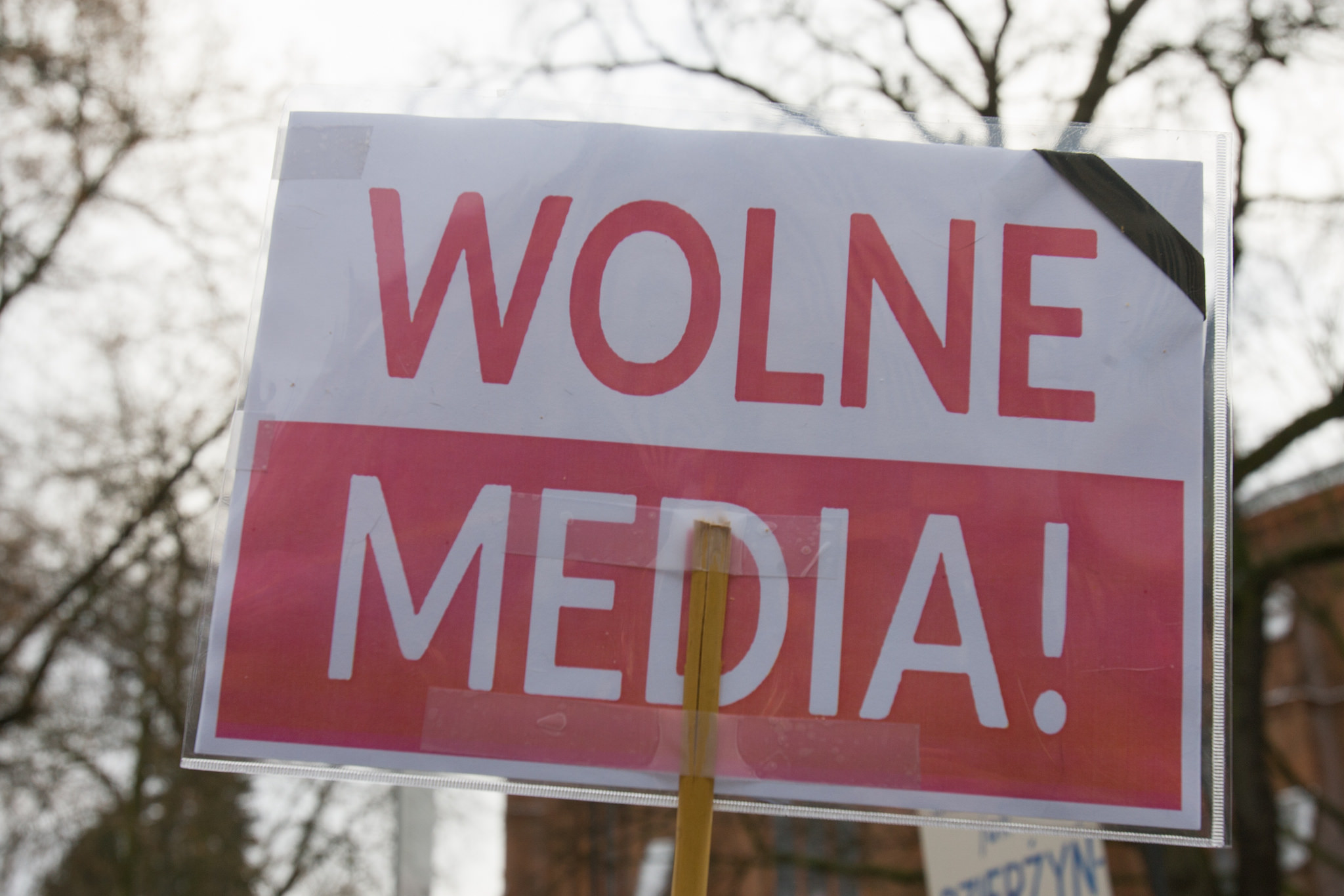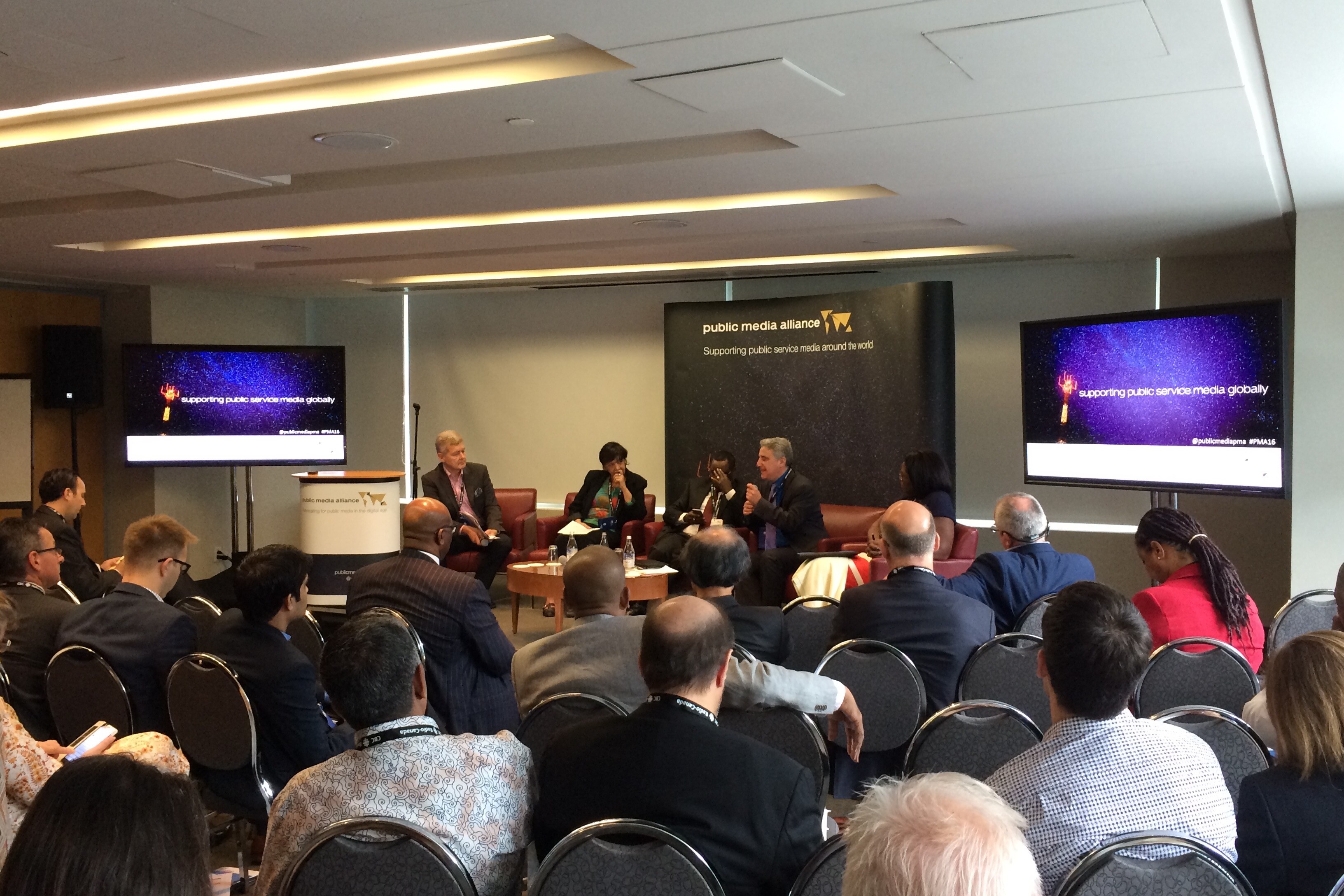
New research by Article 19 and the Helsinki Foundation for Human Rights (HFHR) offers in-depth analysis about ongoing concerns surrounding the independence of public service media in Poland.
The past year has certainly been a tumultuous one for media independence and the state of PSM in Poland. The election of the conservative Law and Justice Party (PiS) in late 2015 led to substantial restrictions on the independence of the country’s public media, including reforms to allow the government to directly appoint the heads of public radio and television as well as the dismissal of hundreds of journalists and media workers.
By October 2016 public media outlets such as Telewizja Polska (TVP) were widely considered to be state broadcasters, with further staff cuts and voluntary redundancies that led to a loss of another 200 journalists, according to RSF. Many left in protest to government interference and restrictions on how reporters could cover the Sejm (Polish Parliament), with suggestions from PiS that the media had an obligation to spread government opinion. More recently PiS placed restrictions on the level of access journalists were allowed to parliament, resulting in substantial protests in defence of free and independent media outside the Sejm in December.
This has not boded well for Poland’s position in global media freedom rankings. Already this year Poland has dropped 29 places to 47/180 in Reporters without Borders’ (RSF) Press Freedom Index, which cited growing governmental control over PSM as a key reason for its decline. In Freedom House’s Freedom in the World 2017 report Poland was listed among 11 countries deserving “special attention” for losing 4 points as a result of government influence over the “media, judiciary, civil service, and education system.”.
The report by Article 19 and HFHR concurs that media independence, freedom and pluralism are under severe threat in Poland and calls for international organisations to “seize any opportunity to remind the Polish Government of its duties under international and European standards on freedom of expression, and to exert appropriate pressure on the Government for the implementation of [its] recommendations.”
Among these recommendations, it calls on the Polish government to adopt legislative changes that reinstate full regulatory control to the National Media Council as stated under the constitution and allow them to appoint new public media management and directors “in accordance with international standards”. Moreover, it calls for the government to cease politically-motivated dismissals of PSM staff and conduct a transparent and consultative review of PSM laws.
The report also demands that the government ensure editorial independence for PSM broadcasters, ensure the independence of the audiovisual regulator, ensure that laws supporting freedom of expression are in line with international standards and that pluralism and diversity within the media is protected.
The full report is available via the Article 19 website.
The Public Media Alliance advocates for a free and independent media landscape where public media organisations can thrive and contribute to democracy. Effective democracies rely on a free press and access to parliament for journalists to document decision-making and hold politicians to account on behalf of the public. The Public Media Alliance urges the Polish government (PiS) to ensure broad access to parliament for journalists, to uphold the democratic principles of a free press and ensure the independence of its public media outlets.
Related Posts
6th January 2017
The ongoing struggle for media freedom in Poland
It is just over a year since Poland’s…


